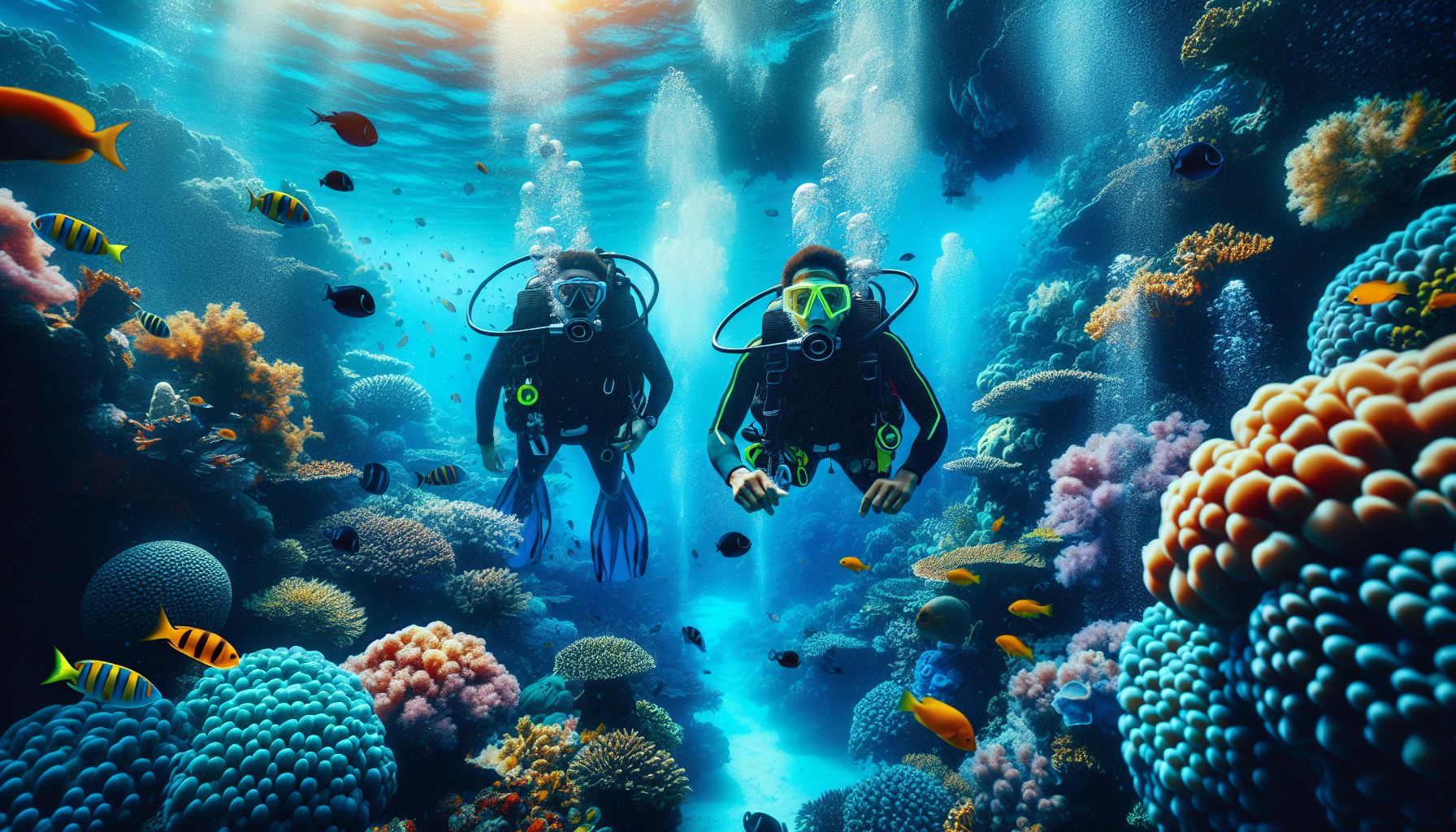Scuba diving is more than just a hobby or a sport; it’s an adventure into an entirely different world. Below the ocean’s surface lies a mysterious and breathtaking universe, teeming with life and color, just waiting to be explored. In this comprehensive article, we’ll explore the magic of scuba diving, from the basics of getting started to the advanced aspects of underwater exploration, as well as the importance of conservation and safety in the sport.
What is Scuba Diving?
Scuba diving is a mode of underwater diving where the diver uses a self-contained underwater breathing apparatus (scuba) that is completely independent of surface supply, to breathe underwater. This allows for greater freedom and mobility, and the chance to interact with marine life and explore underwater environments that would otherwise be inaccessible.
Getting Started with Scuba Diving
Before you can dive into the watery depths, there are a few necessary steps and requirements:
Education and Certification
-
Choosing a Certification Agency: The first step is to select a scuba diving certification agency. The Professional Association of Diving Instructors (PADI) and Scuba Schools International (SSI) are among the most recognized certification bodies worldwide.
-
Taking a Course: You will need to enroll in a certifying course that will teach you the basics of dive theory, equipment, and techniques. The entry-level course often referred to as “Open Water Diver,” usually consists of classroom education, pool training, and open water dives.
-
Passing the Exam: After completing the course, you’ll take a written exam to demonstrate your understanding of scuba diving concepts and safety rules.
Health and Fitness
Scuba diving is relatively safe if you follow the proper procedures, but it does require a basic level of physical fitness and good health:
-
Medical Clearance: You may need to be medically cleared by a doctor before starting your course, particularly if you have pre-existing health conditions that could pose a risk while diving.
-
Swimming Skills: You should be able to swim confidently and should be comfortable in the water.
Equipment
Having the right gear is essential for a safe and enjoyable dive. Here is a list of the basic equipment needed:
- Dive Mask: Provides clear vision underwater and a space to pinch your nose to equalize pressure.
- Scuba Tank: Holds the compressed air you breathe while diving.
- Regulator: Reduces the high pressure of air from the tank to ambient pressure so it can be breathed comfortably.
- Depth Gauge, Submersible Pressure Gauge (SPG), and Compass: Essential for monitoring your depth, air supply, and navigation.
- Buoyancy Control Device (BCD): Helps manage buoyancy underwater – allowing you to float, sink, or remain neutrally buoyant.
- Fins: Provide efficient propulsion through the water.
- Wetsuit/Drysuit: Provides thermal protection.
- Dive Computer: Helps manage no-decompression limits and ascent rates.
Advanced Aspects of Scuba Diving
As you gain more experience, you might find yourself interested in the various specializations within scuba diving. These can include deep diving, cave diving, wreck diving, and technical diving. Each specialization has its own set of challenges and requirements, such as additional training and equipment.
Marine Life and Conservation
Scuba diving provides a unique opportunity to observe marine life in its natural habitat. This privilege comes with a responsibility to protect the marine environment. Respect for marine life, adherence to no-touch policies, and support of conservation efforts are vital. Organizations such as the World Wide Fund for Nature (WWF) and The Ocean Cleanup project are among the many actively working towards ocean conservation.
Diving Safety
Safety is paramount in scuba diving. Here are some key safety rules:
- Never dive alone: Always have a dive buddy.
- Check your gear: Pre-dive equipment checks are crucial.
- Plan your dive: And dive your plan, including maximum depth and bottom time.
- Monitor your air: Always have enough air to surface with a reserve.
- Ascend slowly: To avoid decompression sickness (DCS), it’s important to ascend no faster than 18 meters per minute and perform safety stops.
Exploring Further
Scuba diving opens up a plethora of possibilities for adventure and discovery. Some of the most popular dive destinations include the Great Barrier Reef in Australia, the Blue Hole in Belize, and the Thistlegorm wreck in the Red Sea. Each of these destinations offers unique experiences, from colorful coral reefs to historically significant shipwrecks.
Sources for Further Learning
- Professional Association of Diving Instructors (PADI): https://www.padi.com
- Scuba Schools International (SSI): https://www.divessi.com
- The Ocean Cleanup: https://theoceancleanup.com
The underwater realm is an incredible frontier that can provide lifelong enjoyment and passion. Whether you want to photograph exotic marine life, explore sunken ships, or simply enjoy the peaceful solitude of the underwater world, scuba diving has something for everyone. So gear up, dive in, and prepare to be amazed by the wonders of our blue planet.
